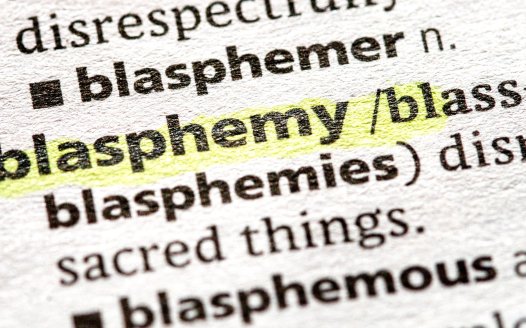Living better together: Muslims and active integration
Posted: Mon, 25th Jul 2016 by Maajid Nawaz
On the theme of living better together, Maajid Nawaz argues that identity policing has further marginalised Muslims and that Britain was wrong to not expect minorities to embrace liberal values.
For years in Britain there has been a pernicious trend to shy away from making a case for our liberal values among minority communities. As these values continued their march unabated among the mainstream, certain multiculturalists assumed that to assert them among minorities would be deemed offensive, perhaps racist, and in the Muslim context even Islamophobic.
The successful turnaround of the "Trojan horse" school Park View — now Rockwood Academy — couldn't have proved this view more wrong. Two years after the scandal, the school has surpassed expectations, with cadet recruitment, after-school drama classes, counterextremism workshops and trips to Wimbledon. Those who worried about a more active integration policy alienating the Birmingham school's predominantly Muslim students really needn't have. So why did they?
Our 1990s-era multiculturalism was intended to bring about diverse communities. Instead, it brought about monocultural ghettos that gave rise to state schools such as Park View broadcasting the Muslim call to prayer from their loudspeakers. Two complementary trends arose together that culturally disintegrated Britain. Within my own Muslim communities, Islamism, a theocratic ideology, which sought to impose a version of Islam over society, emerged practically unchallenged to insist that we were Muslims to the exclusion of every other identity. Meanwhile, among mainstream liberals, multiculturalism came to mean diversity between, rather than within, groups.
Due to these two trends, as a country we celebrated our cities as they self-segregated into isolated cultural ghettos. Division in areas such as Dewsbury and parts of Bradford was hailed as diversity. Self-segregation was supported as cultural tolerance. Disintegration was championed as integration. Those of my fellow liberals who promoted such policies believed they were doing so to help us Muslims. Yet this "help" couldn't have been more disempowering.
Failing to advocate for liberal values within groups and not merely between groups led to a stifling of creativity and a lack of diversity among Muslims. Rebel voices who needed our support inside these communities suffered the most, and feel betrayed by liberals to this day. I call these the minority within the minority: feminist Muslims, gay Muslims, ex-Muslims, secular Muslims and anyone else deemed to be heretical or not Muslim enough.
With progressive Muslim voices being abandoned by wider society, while simultaneously being stifled within by the Muslim "community leaders", it is no wonder that by 2015 a BBC survey of British Muslims found that 11 per cent expressed sympathy with fighting against the West. Twenty per cent said that a western liberal society could never be compatible with Islam, and a quarter sympathised with the Charlie Hebdo "blasphemy" attacks.
Meanwhile, Muslims in today's Britain find it difficult to gain employment, are falling behind educationally, are disproportionately represented in prisons and among terrorist groups, while also remaining behind the rest of the country in our attitudes to civil liberties. Instead of integrating with wider society, many Muslims in Britain turned in on themselves, integrating more with their co-religionists globally while pulling away from the society into which they were born. British Muslim attitudes on key cultural milestones such as homosexuality, blasphemy and religion in politics now have more in common with global Muslim opinion than with liberal Britain.
As a country we ended up living together, apart. By allowing minorities to isolate themselves, the very people my fellow liberals wanted to help were suffering the most. It is no surprise then that such disintegration created a breeding ground for Isis recruiters. The liberal values that we came to expect from everyone else we shied away from advocating among Muslims. It is as if we Muslims were simply incapable of embracing secularism. And as we weren't even expected to be liberal, or in many cases as our illiberalism was celebrated, we naturally grew further and further apart from wider society. I call this the bigotry of low expectations.
If mainstream society had woken up to this earlier, much more could have been done to prevent this polarised and incohesive state in our communities. And though I emphasise that it is not only Muslims who may be isolated in today's Britain, and obviously not all British Muslims live like this, too many do. Culture is never homogenous, and has always been a hybrid. Any artificial desire to preserve the past was not only bound to fail but was destined to fail minorities primarily. Instead of defining communities primarily by their religious identity, we must support policies that encourage diversity not only between groups but within and among groups too.
The success at Rockwood Academy highlights that it never had to be this way. Identities are by definition multiple. So yes I am a Muslim, but I am also English, a secular liberal democrat of Pakistani descent, I was born in Essex and I am British.
When a chance was given instead of denied, when aspiration was encouraged instead of withheld, when integration was expected instead of disparaged, and when social mobility was promised instead of rubbished, the children and parents at Rockwood Academy rushed to it, and excelled. They embraced it all. Indeed, why wouldn't they? There was finally an expectation that they could be just like anyone else.
This article first appeared in the Times and is reproduced here with the author's permission.
Maajid Nawaz is an NSS honorary associate, author and the founding chairman of Quilliam. He will be talking at the NSS conference Secularism 2016: living better together on Saturday 3 September. The views expressed in our blogs are those of the author and may not represent the views of the NSS.







